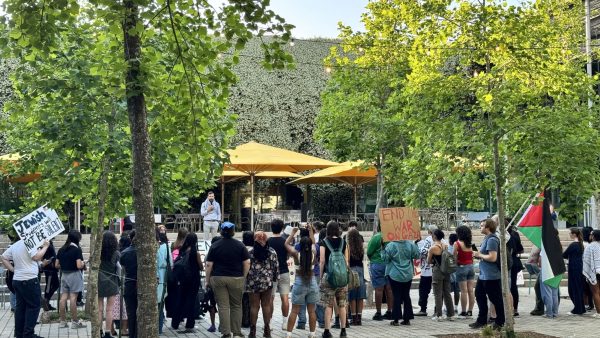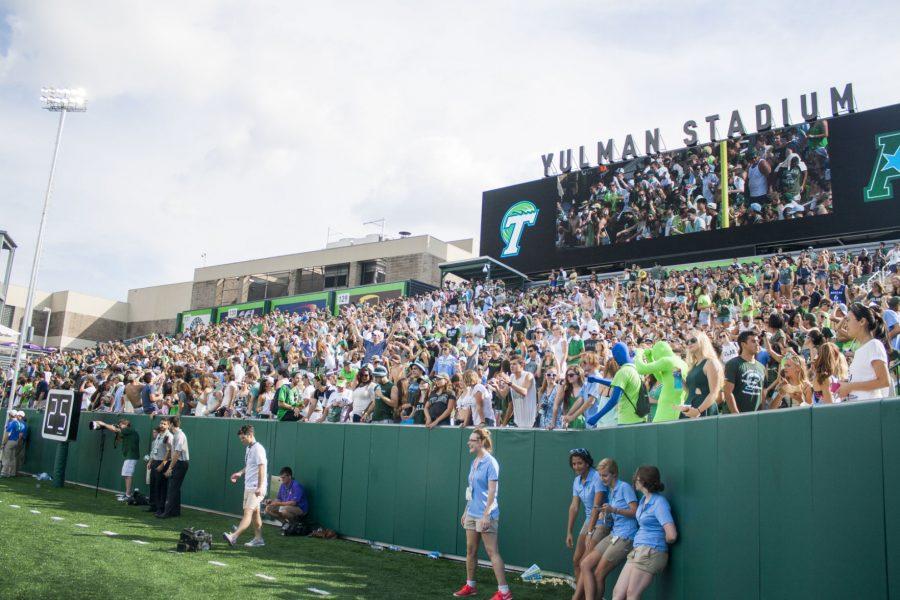Athletics reports Yulman opener operational success despite hiccups
September 10, 2014
Tulane marked a historical moment as the Green Wave stormed onto the field of Yulman Stadium through a dazzling display of smoke and fire on Saturday. For the first time in almost 40 years, Tulane was playing football on campus in a new $73 million stadium.
The opening of Yulman, while undoubtedly the beginning a new era for Tulane athletics, also posed many new and unique challenges to the school’s campus administrators and facility operators. They spent hundreds of hours planning to preemptively solve issues regarding tailgating and transit.
For Executive Associate Athletic Director Brandon Macneill, the student experience was one of the primary concerns for the day.
“We wanted to make sure that we could get enough students in,” Macneill said. “[We wanted] any student that decided to show up [without a ticket to have an opportunity to enter the Stadium]. But unfortunately, there is only so much room, so students can’t expect to get in just by showing up [without a ticket].”
Despite preparations, however, there were a few setbacks.
Before kickoff, confusion regarding the stadium entrances contributed to long waiting lines and crowded gate checkpoints. Macneill said there are already plans in place to alleviate the congestion in the future.
#YulmanStadium seems like a fire hazard..we need an entrance/exit at hickory on audobon
— BrE3zy (@B_rEEzy_B) September 7, 2014
“One of the ways we can improve is by having better directional signs on campus to tell people where and what gates they should enter,” Macneill said. “We’ll also move the gates out a bit, so that people won’t get stuck inside that tunnel again.”
The stifling heat exacerbated these problems. Temperatures above 90 degrees, coupled with high humidity, caused fans to shelter in shaded areas for relief. Many ticket holders in the Glazer Family Club, took advantage of the air-conditioned bars and indoor seating areas during the game, which resulted in empty seats.
Brutal weather catches it’s first victim at Yulman Stadium. #GATech cheerleader stretchered off for heat issues. #Tulane
— Garland Gillen (@garlandgillen) September 6, 2014
Macneill said Tulane will set up cooling tents and fans at certain points outside of the stadium to offer overheated patrons an escape from the heat during future games.
Another issue involved tailgating drop-off points, particularly those on S. Claiborne Avenue. The zones’ close proximity to one another led to increased traffic in the area. Macneill said Tulane’s zoning coordinators are aiming to fix the problem before this weekend.
While the stadium and other general gameday operations encountered some setbacks, Macneill said the future of football on campus looks bright.
“Though there are a million things we can tweak and make smoother, I was very pleased with the day from an operational perspective and especially with the student support,” Macneill said. “The students were so awesome and everyone was responsible. If they keep showing up like that, it is going to give us such a huge advantage and everybody else is going to want to be a part of it.”






















Leave a Comment